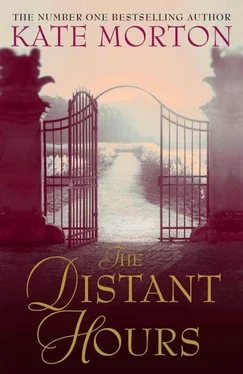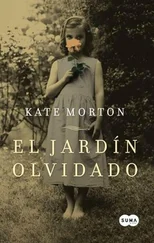Classy Cuts squats behind a tiny shopfront on the Old Kent Road, breath held to fit between an indie record outlet and the best chippie in Southwark. Rita’s as old school as the Motown records she collects and her salon does a roaring trade specializing in finger waves, beehives and blue rinses for the bingo set. She’s been around long enough to be retro without realizing it and likes to tell anyone who’ll listen how she started out at the very same salon as a skinny sixteen-year-old when the war was still raging; how she’d watched through those very front windows on VE Day when Mr Harvey from the milliner’s across the road stripped off his clothes and started dancing down the street, nothing to know him by but his finest hat.
Fifty years in the one spot. It’s no wonder she’s wildly popular in her part of Southwark, the busy chattering stalls set apart from the glistening dress circle of Docklands. Some of her oldest clients have known her since the closest she got to a pair of scissors was the broom cupboard out back, and now there’s no one else they’d trust to set their lavender perms. ‘People aren’t daft,’ Auntie Rita says, ‘give ’em a bit of love and they’ll never stray.’ She has an uncanny knack for picking winners from the local form guide, too, which can’t be bad for business.
I don’t know much about siblings, but I’m quite sure no two sisters have ever been less alike. Mum is reserved, Rita is not; Mum favours neat-as-a-pin court shoes, Rita serves breakfast in heels; Mum is a locked vault when it comes to family stories, Rita is the willing font of all knowledge. I know this firsthand. When I was nine and Mum went to hospital to have her gallstones removed, Dad packed me a bag and sent me to Rita’s. I’m not sure whether my aunt somehow intuited that the sapling in the doorway was way out of touch with her roots, or whether I besieged her with questions, or whether she just saw it as a chance to aggravate Mum and strike a blow in an ancient war, but she took it upon herself that week to fill in many blanks.
She showed me yellowed photographs on the wall, told me funny stories of the way things had been when she was my age, and painted a vivid picture with colours and smells and long-ago voices that made me starkly aware of something I’d already opaquely known. The house where I lived, the family in which I was growing up, was a sanitary, lonely place. I remember lying on the small spare mattress at Rita’s house as my four cousins filled the room with their soft snores and fidgety sleep noises, wishing she were my mother instead; that I lived in a warm, cluttered house stretching at the seams with siblings and old stories. I remember, too, the instant rush of liquid guilt as the thought formed in my mind; screwing my eyes tight shut and picturing my disloyal wish as a piece of knotted silk, untying it in my mind then conjuring a wind to blow it away as if it had never been.
But it had.
Anyway. It was early July and hot the day I reported in; the sort of hot you carry in your lungs. I knocked on the glass door and, as I did so, caught a glimpse of my own tired reflection. Let me just say, carving out sofa real-estate with a flatulent dog does nothing for one’s complexion. I peered beyond the ‘Closed’ sign and saw Auntie Rita sitting at a card table in the back, cigarette dangling from her bottom lip as she examined something small and white in her hands. She waved me in. ‘Edie, luvvie,’ she said over the welcome bell and The Supremes, ‘lend me your eyes, will you, poppet?’
It’s a little like stepping back in time, visiting Auntie Rita’s shop. The black and white chessboard tiles, the bank of leather-look lounge chairs with lime-green cushions, the pearly eggcup hairdriers on retractable arms. Posters of Marvin Gaye and Diana Ross and The Temptations framed behind glass. The unchanging smell of peroxide and next-door’s chip grease, locked in mortal combat.
‘I’ve been trying to thread this blasted thing through there and there,’ Rita said around her cigarette, ‘but as if it’s not bad enough that my fingers have turned to thumbs, the bloody ribbon’s upped and grown a mind of its own.’
She thrust it towards me and with a bit of squinting I realized it was a small lacy bag with holes in the top where a drawstring should be.
‘They’re favours for Sam’s hens,’ Auntie Rita said, nodding at a box of identical bags by her feet. ‘Well, they will be once we’ve made ’em up and filled ’em with goodies.’ She dumped the ash from her cigarette. ‘Kettle’s just boiled, but I’ve got some lemonade in the fridge if you’d rather?’
My throat contracted at the mere suggestion. ‘I’d love one.’
It’s not a word you’d normally think to associate with your mother’s sister, but it’s true so I’ll say it: she’s saucy, my auntie Rita. Watching her as she poured our lemonades, rounded bottom stretching her skirt in all the right places, waist still small despite four babies more than thirty years ago, I could well believe the few anecdotes I’d gleaned from Mum over the years. Without exception these had been delivered in the form of warnings about the things good girls didn’t do, however they’d had a rather unintended effect: cementing for me the admirable legend of Auntie Rita, rabble-rouser.
‘Here you are then, luvvie.’ She handed me a martini glass spitting bubbles and harrumphed into her own chair, prodding at her beehive with both sets of fingers. ‘Phew,’ she said, ‘what a day. Lord – you look as tired as I feel!’
I swallowed a glorious lemon sip, fierce bubbles singeing my throat. The Tempations started crooning ‘My Girl’ and I said, ‘I didn’t think you opened Sundays?’
‘I don’t, not as a habit, but one of my old dears needed a rinse and set for a funeral – not her own, mercifully – and I didn’t have the heart to turn her away. You do what you must, don’t you? Like family some of them.’ She inspected the bag I’d threaded, tightened the drawstring, loosened it again, long pink fingernails clacking together. ‘Good girl. Only twenty more to go.’
I saluted as she handed me another.
‘Anyway, gives me a chance to get a bit of work in for the wedding: away from prying eyes.’ She widened her own briefly before narrowing them like shutters. ‘That Sam of mine’s a nosey one, always was, even as a girl. Used to scale the cupboards looking for where I’d stashed the Christmas goodies, then she’d dazzle her brothers and sisters by guessing what was wrapped beneath the tree.’ She drew a fresh cigarette from the packet on the table, said; ‘Little beggar,’ and struck a match. The cigarette tip flared hopefully then settled. ‘How about you then? Young girl like you oughta have better things to be doing with her Sunday.’
‘Better than this?’ I held up my second little white bag, ribbon in place. ‘What could be better than this?’
‘Cheeky mare,’ she said, and her smile reminded me of Gran in a way that Mum’s never does. I’d adored Gran with a might that belied any suspicions I’d had growing up that I must surely be adopted. She’d lived alone for as long as I’d known her, and though, as she was quick to point out, she’d had her share of offers, she refused to remarry and be an old man’s slave when she knew what it was to be a young man’s darling. There was a lid for each pot, she’d told me often and soberly, and she thanked God she’d found her lid in my grandfather. I never met Gran’s husband, Mum’s father, not that I remembered: he died when I was three and on the few occasions I thought to ask about him, Mum, with her distaste for rehashing the past, had always been quick to skim the subject’s surface. Rita, thank goodness, had been more forthcoming. ‘So,’ she said, ‘how’d you get on then?’
Читать дальше












